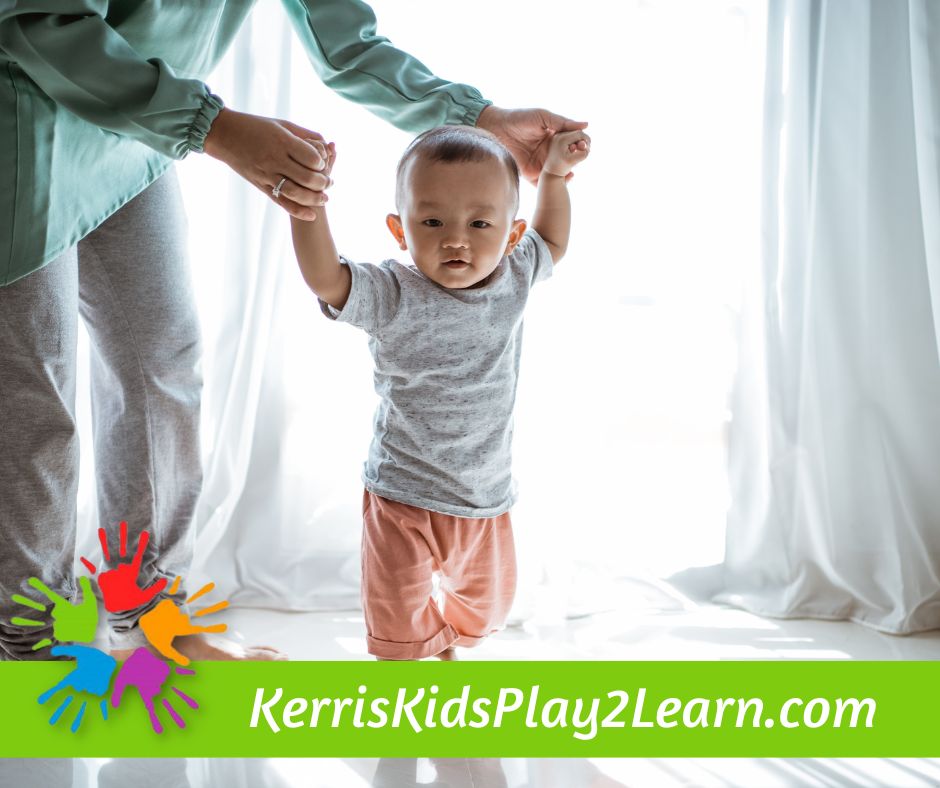Once your baby is born, you are bombarded with “milestones”.
By the time your baby is a few months old, the pediatrician check-ins appointments will include
milestone checklists. The CDC begins baby milestones starting at 2 months old. These include social-
emotional milestones, language and communication milestones, physical milestones, and even cognitive
milestones!
This is CRAZY!
We’re supposed to assess our baby’s cognitive skills at 2 months old???
Don’t get me wrong – milestones ARE important and they DO have a purpose. But they also cause fear
and stress among parents, who are always trying to keep up with expectations for healthy child
development.
What happens once you miss a milestone?
Let’s say by 4 months or 6 months, you start to notice a little delay in the milestones. Maybe your baby
isn’t laughing yet, or isn’t reaching for toys yet, or rolling over from tummy to back. Even if you bring this
up at an appointment, most doctors will take a “wait and see” approach.
By 12 months old, according to the CDC, your baby should be saying “mama” and “dada”, playing games
like patty cake, and pulling up (with help from furniture) into a standing position. Between 1 and 2 is
when most parents will notice if there are significant delays, and this is also when fear can take over.
Rather than enjoying this amazing time in your child’s life, you are obsessing about why they aren’t
walking yet, or why they aren’t saying a few words like the other babies in your play groups. You may
compare your baby to your nieces and nephews, who all seemed to hit their milestones early.
Seeking professional help
At this point, you may have your child assessed by your pediatrician or by a pediatric therapy provider,
and begin Speech Therapy or Physical Therapy. This is great! You are taking action.
At this point, throw the milestones out the window.
Milestones serve a purpose – to let you know what is considered healthy development and to help you
identify a delay. Once there is a known delay in your child and you are providing interventions like my
play groups or pediatric therapy, you can stop obsessing about these milestones. Your child will still
reach them – in their own time.
And that’s okay!
All babies and children develop differently. The problem with these milestones is that they can cause us
to focus on where our kids AREN’T, rather than where they ARE. Maybe they aren’t speaking in words
yet, but they are making sounds and have the most adorable smile in the world. Maybe they aren’t
making eye contact yet, but they still cuddle and love being close to you. Maybe they aren’t pulling up
on furniture yet or trying to walk, but their little scooting technique is so cute!
If we can let go of the milestones (even just a little), it allows us space to enjoy and appreciate all of the
small, magical moments that make your child unique and special!
Focus on the journey, not on the destination.

